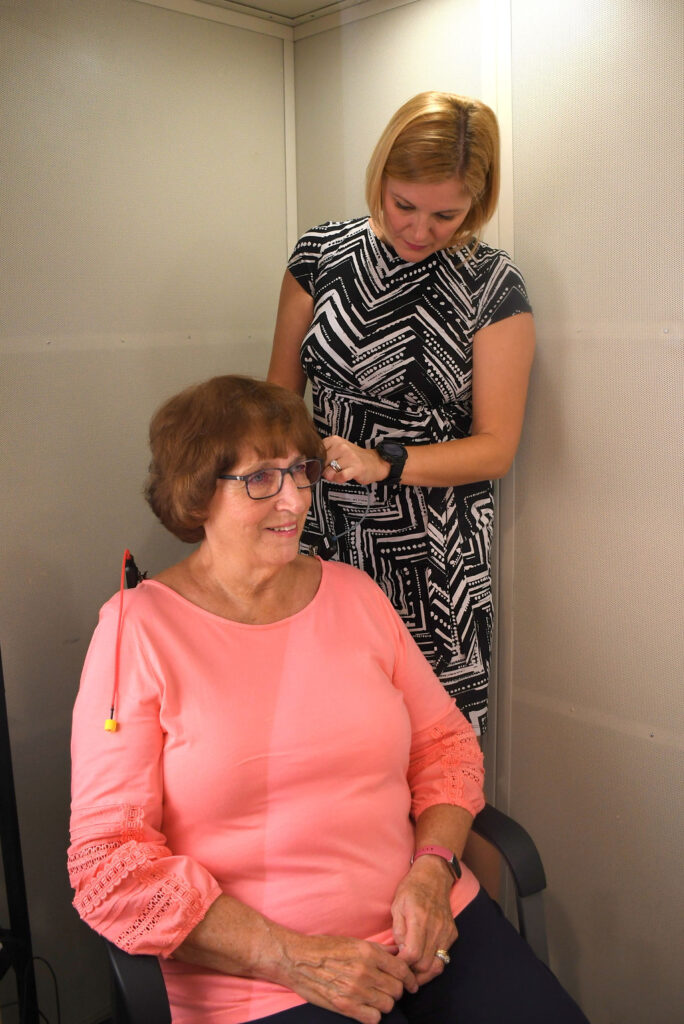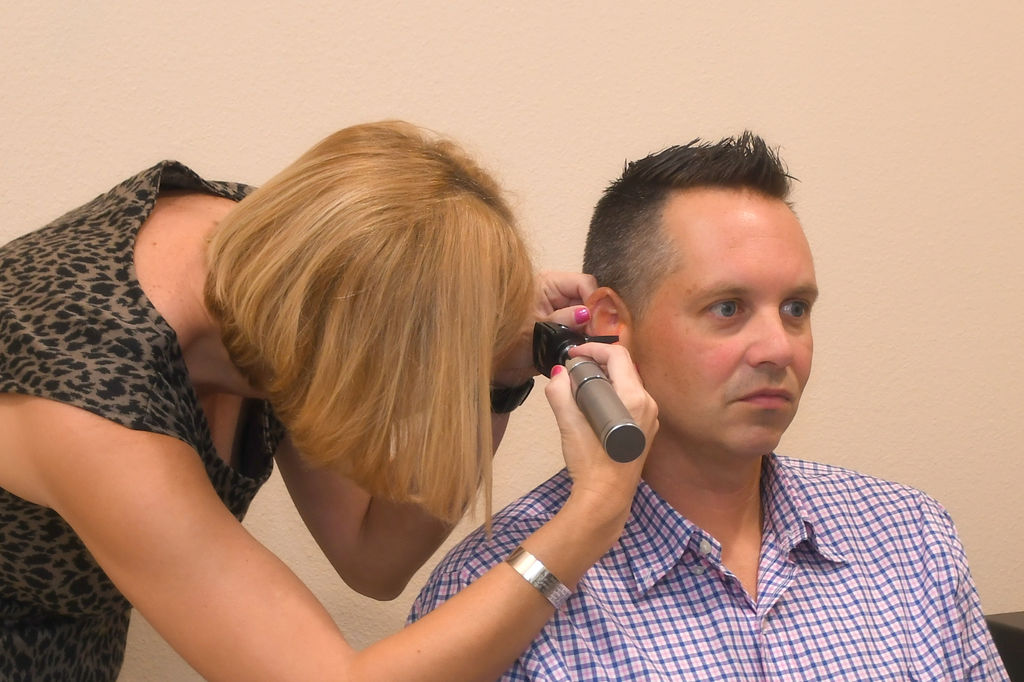The onset of hearing loss usually occurs gradually but in some cases, some individuals may also experience sudden hearing loss. Hearing tests are crucial in detecting loss of hearing and determining its type and level of severity.
For any problems or concerns pertaining to hearing loss, getting a comprehensive hearing evaluation from an audiologist is highly recommended to ensure that no further hearing damage can occur and the appropriate treatments are provided right away.
Harbor City Hearing Solutions provides comprehensive hearing tests in Melbourne, FL and nearby areas.
What happens during a hearing test?
The first step in a hearing evaluation usually involves filling out a medical history patient form. This will include a series of questions to help us better understand your health and hearing history.
Since there are various potential causes of hearing loss, getting an accurate medical background can help us explore the possibility of genetic or inherited hearing loss. Certain medical conditions including colds, allergies, ear infections, or impacted earwax can also contribute to hearing loss.
During the initial stages of the hearing evaluation, we will also ask you if you’ve experienced any trauma to the head or ear structures. Your occupation, hobbies, and lifestyle will also be discussed as your exposure to certain environments can also play a role in your hearing health.
Most hearing tests are conducted in a quiet, sound-treated room or booth designed to keep any external noises that might affect hearing exam scores.
Patients will be asked to wear headphones or earplugs with wires connected to an audiometer. For infants or small children, specially-placed speakers and equipment will be used.

Hearing Tests at Harbor City Hearing Solutions
Pure-Tone And Bone Conduction Testing
Pure-tone testing identifies the softest tones that a patient can hear at various frequencies, both high and low. Bone-conduction testing is similar to pure-tone testing but it uses a different type of equipment to provide a different set of information.
Bone-conducting testing will help audiologists determine if the hearing loss is conductive or sensorineural in nature.
Speech testing
Speech in noise testing is performed to evaluate the person’s understanding in background noise. A speech reception threshold test is performed to confirm the results of a pure-tone test. In this test, we can determine the lowest level of sound a patient can clearly identify verbal speech.

Otoscopy
This is a visual checkup of the ears where hearing healthcare professionals use an auriscope or otoscope to look into the ears. Otoscopy is an essential part of regular hearing check-ups.
Through otoscopy, audiologists can get a clear view of the ear canal as well as the tympanic membrane or eardrum. Any perforations, impaction, or physical damage can be seen through an otoscope.
Specialized tests
We also offer specialized hearing tests for infants, young children, and patients with developmental or cognitive impairments.
These specialized tests allow us to test the auditory system even if the patient is not able to actively participate in or follow the instructions in the evaluation.
When Should Hearing Be Checked?
According to the American Speech-Language-Hearing Association, regular hearing screenings help maintain hearing health. Adults aged 18-40 years old and not experiencing any noticeable hearing loss are advised to have their hearing tested every three to five years.
Of course, if you or a family member suspects hearing loss or any hearing concerns, hearing should be checked as soon as possible.
What happens after the hearing evaluation?
After the evaluation, we will review and discuss the results with the patient. We can interpret the tests for you and answer your questions, providing vital information and referrals as needed.
This is also the time to plan for your hearing treatment and rehabilitation.
What’s the difference between hearing screening and hearing evaluation?
A hearing screening may be referred to as a pass-or-fail kind of test. The main purpose of a hearing screening is to determine if a patient has normal hearing or not.
A screening test covers hearing across all pitches but it is not enough to pinpoint the type and degree of hearing loss. In short, it will only declare evidence of hearing loss.
On the other hand, a hearing evaluation or hearing exam is a comprehensive examination performed by a licensed audiologist that includes a full case history and various types of hearing tests.
Hearing evaluations also include interpretation and discussion of test results. Based on the results of a hearing evaluation, hearing care providers can create a treatment plan and prescribe appropriate treatment, which may primarily include hearing aids.
Hearing Tests in Melbourne, FL
Hearing loss can affect overall health and wellness which is why getting a baseline hearing test and annual hearing check-ups are essential to catch any hearing problems early on.
Harbor City Hearing Solutions offers comprehensive hearing tests in Melbourne, FL and nearby areas.
Contact us today to schedule an appointment!


